Reduction International

What role do carbon markets play in international climate change agreements ?
In international climate change agreements, carbon markets are a crucial component. They provide a mechanism for countries to meet their greenhouse gas (GHG) emission reduction targets in a cost-effective manner by trading carbon credits. Carbon markets encourage businesses and governments to invest in cleaner technologies and practices. They offer flexibility to countries in meeting their emission reduction commitments, provide incentives for innovation, facilitate international cooperation, and can be integrated with other environmental and economic policies. Examples of carbon markets in international agreements include the Kyoto Protocol and the Paris Agreement.
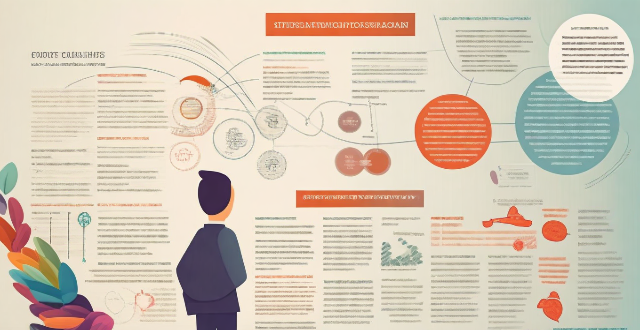
Are there any international agreements or initiatives related to energy conservation and emission reduction ?
The article provides an overview of several international agreements and initiatives related to energy conservation and emission reduction. These include the United Nations Framework Convention on Climate Change (UNFCCC), the International Energy Agency (IEA), the Clean Energy Ministerial (CEM), the Global Green Growth Institute (GGGI), and the Renewable Energy Policy Network for the 21st Century (REN21). The objectives, key elements, and achievements of each are discussed in detail. The article concludes by emphasizing the importance of these collaborative efforts in addressing climate change and ensuring sustainable development.

Are there any laws or regulations aimed at promoting waste reduction ?
Laws and regulations aimed at promoting waste reduction include extended producer responsibility (EPR), landfill taxes and bans, recycling targets, packaging regulations, local ordinances and programs such as curbside recycling and composting, waste reduction education campaigns, pay-as-you-throw programs, and international agreements like the Basel Convention. These measures encourage sustainable practices, reduce waste production, and promote recycling.

What is the impact of renewable energy on emission reduction goals ?
The shift to renewable energy sources such as solar, wind, hydro, and geothermal power is vital for reducing greenhouse gas emissions and achieving global emission reduction goals. This transition brings multiple benefits including decreased reliance on fossil fuels, improved air quality, enhanced energy security, economic stimulation through job creation and long-term cost savings, technological innovation leading to reduced costs, and significant contributions to mitigating climate change. As technology advances and economies of scale are achieved, renewable energy's role in facilitating further progress toward emission reduction objectives will become increasingly important.

What is the relationship between climate finance and disaster risk reduction ?
Climate finance and disaster risk reduction are interconnected concepts that address the impacts of climate change. Climate finance provides funding for projects aimed at reducing greenhouse gas emissions and adapting to climate change, while disaster risk reduction involves strategies to minimize the potential impacts of natural disasters on communities and infrastructure. The relationship between the two lies in their shared goal of addressing climate change, with climate finance supporting disaster risk reduction through funding for adaptation measures, investments in vulnerable communities, promoting sustainable development, encouraging innovation, and strengthening institutional capacity.

How does waste reduction contribute to a circular economy ?
The transition to a circular economy is significantly influenced by waste reduction, which encompasses various strategies like reusing products, recycling materials, and promoting resource efficiency. These practices help in conserving natural resources, reducing pollution, creating economic opportunities, and fostering sustainable consumer behavior. Governments and businesses play a crucial role in driving waste reduction through policy initiatives, technological innovations, and sustainable supply chain management. Community engagement and public awareness further support this shift towards a more sustainable economic model.

Can you explain the Kyoto Protocol and its impact on international climate policy ?
The Kyoto Protocol, an international environmental treaty adopted in 1997 and effective from 2005, is a legally binding agreement aimed at reducing greenhouse gas emissions to combat climate change. Named after Kyoto, Japan, where it was signed, the protocol has significantly influenced international climate policy by establishing specific emission reduction targets for developed countries, introducing market-based mechanisms like Joint Implementation and Emissions Trading, promoting the Clean Development Mechanism, enhancing international cooperation, sparking debates on global versus national responsibility, and influencing subsequent climate agreements like the Paris Agreement.

What role does waste reduction play in sustainable development ?
The article discusses the importance of waste reduction in sustainable development. It highlights the environmental, economic, and social benefits of waste reduction, including conservation of natural resources, protection of ecosystems, climate change mitigation, cost savings, job creation, innovation and efficiency, public health, education and awareness, and community engagement. The article emphasizes that waste reduction is an essential component of sustainable development and encourages individuals, businesses, and governments to take action to reduce waste.

Are there any international standards for carbon credit systems ?
There are several international standards and protocols that govern carbon credit systems, including the Climate Action Reserve (CAR), the International Carbon Reduction and Offset Alliance (ICROA), and regional and national standards such as the European Union Emissions Trading System (EU ETS) and the North American Carbon Programme (NACP). These standards ensure the credibility, transparency, and integrity of carbon offset projects by setting rigorous guidelines for project developers to follow. By adhering to these standards, organizations can demonstrate their commitment to combating climate change and contribute to a more sustainable future.

Can you provide examples of successful international cooperation initiatives ?
Successful International Cooperation Initiatives International cooperation is a vital aspect of global progress, enabling countries to work together towards common goals. Here are some examples of successful international cooperation initiatives: 1\. The United Nations Framework Convention on Climate Change (UNFCCC) aims to stabilize greenhouse gas concentrations in the atmosphere at a level that prevents dangerous human interference with the climate system. It has been ratified by 197 parties, making it one of the most widely accepted international agreements. 2\. The World Health Organization (WHO) is the directing and coordinating authority on health within the United Nations system. It provides leadership, research, norms and standards, and technical support to countries worldwide. 3\. The International Space Station (ISS) is a joint project among five space agencies: NASA (United States), Roscosmos (Russia), JAXA (Japan), ESA (European Space Agency), and CSA (Canadian Space Agency). It serves as a microgravity and space environment research laboratory. 4\. The Convention on International Trade in Endangered Species (CITES) is an international agreement between governments aimed at ensuring that international trade in wild animals and plants does not threaten their survival. It regulates or bans trade in species listed in its appendices.

How do cultural factors influence waste reduction practices ?
The text provides an overview of how cultural factors influence waste reduction practices, highlighting the role of cultural attitudes, social norms, education, religious beliefs, economic conditions, and technological advancements in shaping waste management behaviors. It emphasizes that respect for resources, consumerism vs. conservatism, composting traditions, public awareness campaigns, community cleanliness standards, taboos around waste, environmental education, family values, role models, stewardship principles, reincarnation beliefs, interconnectedness philosophies, affordability of disposable products, recycling costs, government incentives, access to technology, digital awareness campaigns, and innovative product design are all aspects of culture that can significantly impact waste reduction efforts. By understanding these cultural dynamics, more effective strategies for sustainable living can be developed globally.

How does international environmental law address global warming ?
International environmental law plays a crucial role in addressing global warming by setting standards, encouraging cooperation, and promoting sustainable practices through treaties, agreements, and principles. The Framework Convention on Climate Change (UNFCCC), the Kyoto Protocol, and the Paris Agreement are key legal instruments that establish targets for reducing greenhouse gas emissions and provide mechanisms for compliance and financial support. Other initiatives such as Regional Seas Programmes, the Convention on Biological Diversity (CBD), and Forest Law Enforcement, Governance and Trade (FLEGT) also contribute to mitigating climate change. Challenges include enforcement, political will, and ensuring equity and justice in actions taken. As the fight against global warming continues, international environmental law must adapt to evolving scientific, political, and technological landscapes, requiring collaboration and innovation among nations.

How can climate services help in disaster risk reduction ?
Climate services play a crucial role in disaster risk reduction by providing essential information and tools that help communities, governments, and businesses to anticipate and respond to the impacts of climate change. These services encompass a range of activities, including weather forecasting, climate monitoring, and the development of early warning systems. Climate services contribute to disaster risk reduction through several strategies, including risk assessment, preparedness planning, early warning and response, and recovery and resilience building. By leveraging these services, societies can build resilience against the increasing challenges posed by a changing climate.

How can businesses implement waste reduction practices in their operations ?
This topic discusses the importance of waste reduction in businesses and provides strategies for implementing sustainable practices. It emphasizes the benefits of conducting a waste audit, adopting eco-friendly packaging, optimizing manufacturing processes, promoting reuse and repair, training employees in waste reduction, and partnering with green suppliers. The goal is to contribute to a more sustainable future while also benefiting financially through cost savings and efficiency gains.

What is the relationship between waste reduction and energy conservation ?
The article discusses the relationship between waste reduction and energy conservation, highlighting their importance in promoting sustainable development. Waste reduction strategies such as recycling, composting, reusing materials, and reducing packaging conserve natural resources, reduce landfill space, and lower greenhouse gas emissions. Energy conservation measures like using energy-efficient appliances, improving insulation, and promoting renewable energy sources lead to lower energy costs, reduced greenhouse gas emissions, and promote sustainable development. The practices are interconnected, with recycling saving energy, composting reducing energy use, reducing packaging saving energy, energy-efficient appliances reducing waste, and promotion of renewable energy sources conserving energy and reducing waste.
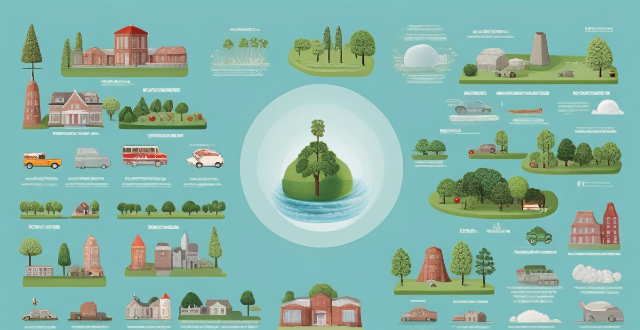
How does climate change influence resource competition and its impact on international relations ?
Climate change is significantly impacting resource competition and international relations by altering the availability and distribution of natural resources like water, food, and energy. This results in increased competition among nations for these resources, affecting economic systems, political structures, and global stability. Water scarcity due to changing precipitation patterns is causing conflicts, especially in regions sharing rivers or aquifers. Changes in temperature and rainfall patterns are affecting food production, leading to increased import dependency and potential conflicts over limited resources. Energy resource competition is shifting towards renewables due to climate change impacts on fossil fuels. Countries are engaging in mitigation and adaptation efforts through international agreements, technology transfer, and disaster risk reduction. While climate change presents challenges, it also offers opportunities for global cooperation in addressing this common threat.

What role do international organizations play in climate financing ?
International organizations play a crucial role in climate financing by providing funding, technical assistance, and policy guidance to support the transition to a low-carbon economy. Their efforts are focused on mitigating the effects of climate change and adapting to its impacts, with contributions including funding from multilateral development banks and the United Nations Framework Convention on Climate Change, technical assistance from the United Nations Environment Programme and the International Renewable Energy Agency, policy guidance from the International Energy Agency and the Organisation for Economic Co-operation and Development, and collaboration and partnerships through initiatives like the Climate Investment Funds and private sector initiatives.
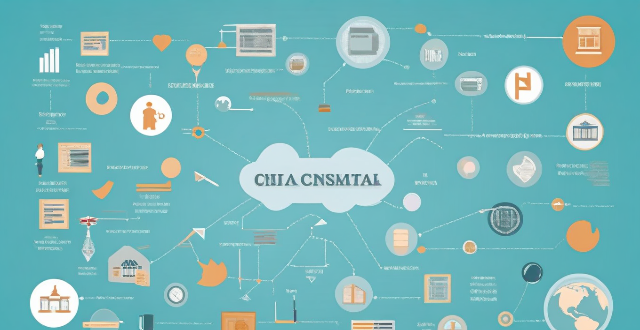
What is the role of international organizations in financial regulation ?
International organizations are crucial in financial regulation, promoting stability, cooperation, and coordination among countries. They set global standards, enhance coordination, provide policy advice, facilitate information exchange, and monitor market developments. The Basel Committee on Banking Supervision, International Organization of Securities Commissions, and International Association of Insurance Supervisors develop regulatory standards for banks, securities regulators, and insurance, respectively. The Financial Stability Board coordinates international financial regulation, while the Bank for International Settlements facilitates cooperation among central banks. The World Bank and IMF offer technical assistance and support for financial sector development and reform. The Committee on Payment and Settlement Systems promotes payment system stability, and the Joint Forum of Tax Administrations addresses tax evasion. The Global Financial Stability Report and Early Warning Exercises monitor market developments and emerging risks. Overall, these organizations help ensure financial stability, reduce systemic risks, and foster a more transparent and resilient global financial system.

Can you explain the myth of spot reduction in fitness ?
Spot reduction, the idea of targeting specific areas for fat loss through exercise, is a myth debunked by scientific research. To achieve desired body composition, focus on total body workouts, maintain a healthy calorie deficit, increase cardiovascular activity, strength train regularly, and be patient and consistent.

Can international cooperation help mitigate climate-related conflicts ?
The text discusses how climate change can exacerbate conflicts and the role of international cooperation in mitigating these impacts. It outlines various challenges posed by climate change, such as water scarcity, food insecurity, natural disasters, and economic instability, and how they can lead to conflicts. The text then explores the potential roles of international cooperation, including diplomacy, technology transfer, financial support, education, and capacity building. It also highlights challenges to achieving effective international cooperation, such as political will, economic disparities, and cultural differences. Finally, the text concludes that international cooperation is essential in addressing climate-related conflicts and that collaborative efforts can lead to a more resilient and equitable world.

Can waste reduction lead to cost savings for individuals and companies ?
Waste reduction can lead to cost savings for both individuals and companies by minimizing waste in various aspects of daily life and business operations. For individuals, reducing food waste through meal planning and proper storage, minimizing energy consumption with energy-efficient appliances and water conservation, and reducing unnecessary spending through secondhand shopping and repairing instead of replacing can result in significant cost savings. Companies can also benefit from waste reduction by optimizing production processes with lean manufacturing techniques and resource recovery, improving logistics and supply chain management through just-in-time inventory and efficient packaging, and enhancing energy efficiency with green building design and employee training. Overall, waste reduction is a crucial aspect of sustainable living and business practices that can lead to cost savings while contributing to environmental sustainability.

What are the most effective strategies for waste reduction in households ?
Effective Strategies for Waste Reduction in Households 1. Reduce: Buy only what you need, choose products with less packaging, and use reusable items. 2. Reuse: Donate or sell unwanted items and repurpose old items for new uses. 3. Recycle: Separate recyclable materials, know what can be recycled locally, and compost organic waste. 4. Avoid Single-Use Plastics: Bring your own reusable bags and use refillable containers. 5. Educate Yourself and Others: Learn about waste reduction and share tips with friends and family.

Are there any international efforts to harmonize climate change legislation across different countries ?
International efforts are underway to harmonize climate change legislation across different countries, including the United Nations Framework Convention on Climate Change (UNFCCC), International Emissions Trading Association (IETA), Carbon Pricing Leadership Coalition (CPLC), and Global Green Growth Institute (GGGI). These initiatives aim to create a unified approach to addressing the global challenges posed by climate change through regular meetings, national communications, emissions trading standards, carbon pricing policies, and green growth strategies.

How do issues like doping scandals affect the reputation of countries in international sports ?
Doping scandals have a negative impact on the reputation of countries in international sports, including loss of credibility, negative media coverage, reduced participation in international competitions, financial consequences, and damage to athlete reputations.
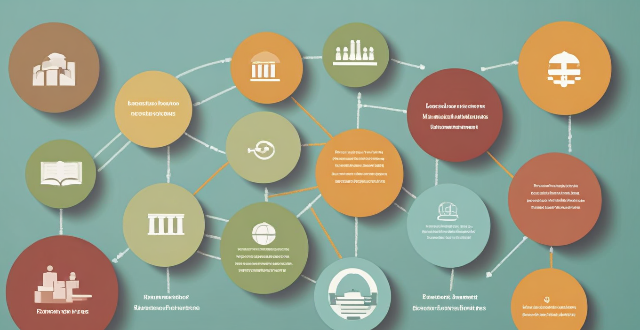
What are the legal implications of failing to meet climate targets set by international agreements ?
Failing to meet climate targets set by international agreements can have significant legal implications, including liability for damages caused by climate change, violation of international law, and domestic legal consequences. These implications can vary depending on the specific agreement and jurisdiction in question, but some common consequences include public and private claims for damages, trade sanctions, loss of funding or aid, international dispute resolution, regulatory compliance, shareholder pressure, and reputational risk.

What role do individuals play in achieving the goals of energy conservation and emission reduction policies ?
The article discusses the critical role of individuals in achieving energy conservation and emission reduction policies. It emphasizes the importance of individual action, highlighting the collective impact of small changes and the potential for behavioral change. The article provides various ways individuals can contribute, such as reducing energy consumption, reducing waste, supporting renewable energy, and advocating for change. It concludes by emphasizing the power of individuals to bring about change and safeguard the planet for future generations.

How can universities improve their support services for international students ?
Universities can enhance support for international students by offering cultural orientation, language training, academic tutoring, writing assistance, social integration activities, career development, and internship opportunities.
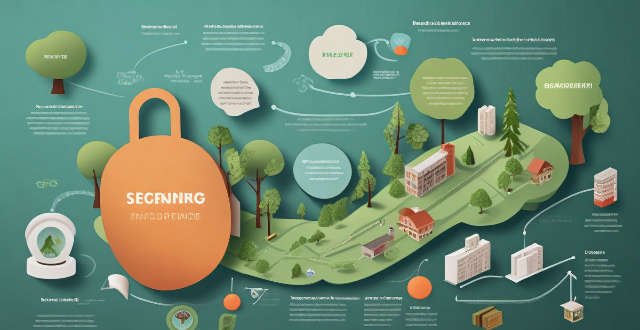
How do carbon credits contribute to reducing greenhouse gas emissions ?
Carbon credits are a key tool in the fight against climate change, as they incentivize emission reductions, facilitate international cooperation, support sustainable projects, enhance transparency and accountability, and promote market efficiency. By creating economic value for carbon reduction efforts, stimulating innovation, meeting global targets, sharing mitigation burdens, financing renewable energy and forest conservation projects, ensuring rigorous monitoring and verification, promoting cost-effective abatement, and providing clear price signals, carbon credits play a crucial role in reducing greenhouse gas emissions.

Can international students apply for scholarships ?
International students can apply for various scholarships offered by universities and organizations to offset the cost of tuition, books, and living expenses. These include merit-based scholarships awarded based on academic or leadership skills, need-based scholarships considering financial situation, athletic scholarships, diversity scholarships, and first-generation college student scholarships. External organizations like the Fulbright Program and Rotary International also provide opportunities. To apply, research available scholarships, review requirements, prepare application materials, apply early and regularly, and seek additional funding sources.

What are some popular shopping apps that provide international shipping options ?
The text provides a summary of popular shopping apps that offer international shipping options, including Amazon with its Global Store, Amazon Global, and Prime International Shipping; eBay with its Global Shipping Program and International eBay Sites; AliExpress with Standard Shipping, CaoNiLao Premium Shipping, and DHL Shipping; ASOS with Global Shipping and free returns; and Zalando with International Shipping and partnerships with local postal services.